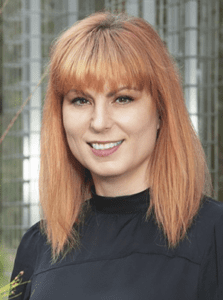VC3 brings decentralized autonomous organizations (DAO) to venture capital by using the power of a very selective crowd.
Emerging from stealth in late June, VC3 invests in Web3 startups. It accesses the combined expertise of 160 venture capital professionals and Kauffman Fellows, representing over 600 firms over six continents. Together, they have close to $300 billion in assets under management and north of $8.5 trillion in exits.
Founder attracted by the potential of decentralization
Founding member Jules Miller ran IBM’s blockchain ventures fund before becoming a partner in Mindset Ventures. They make seed to Series B investments in B2B software. While the firm was not specifically Web3 focused, Miller brought in several blockchain deals.

She founded a pair of legal tech firms and initially separated blockchain from cryptocurrency, with her first thoughts on its applications in accounting. After becoming involved, Miller became interested in how tokenization propels some blockchain applications.
“Everyone does have their light bulb moment where they go, ‘if this works, it’s mighty and radical and completely changes how we do things,” Miller said. “That changes the power dynamics of things. And once you see that, it’s tough not to get excited about the space.”
Ironically, opportunities in a decentralized field were scrutinized in a centralized environment. Miller began mapping out what an investment DAO would look like.
“We’re decentralizing the things that we think matter, which are due diligence, deal flow, and portfolio support,” Miller said. “We have four elected committees, of which Katelyn is on the Tokens Committee, and I’m on the Governance Committee.”
Building a new social contract
Katelyn Donnelly is the managing director of Avalanche VC. Earlier in her career, she started a company that works with governments to drive effective reform programs. That helped foster an interest in how to involve more people in corporate governance. She also explores ways of aligning incentives with contributions.
Donnelly said investing in Web3 is not a spectator sport. People need to join DAOs, read blogs and get involved. That’s what drives the community’s passion.

“That philosophical core remains, and that’s what got me interested,” Donnelly said. “You can see people in good faith, building a new social contract.”
How VC3 utilizes its network
VC3 explores how professional venture capitalists can use decentralized processes at scale, Miller said. They earn tokens for actions such as sharing a deal that eventually gets done.
When it comes time to bring in and scrutinize deals, the DAO gets to work. They vote at multiple points and assist with due diligence. A fund also makes investments on the DAO’s behalf. Contributors earn additional tokens for their efforts.
“Once we make investments, the DAO votes and provides a signal to the fund on whether the DAO likes the company or not,” Miller said. “Then the fund makes the final decision on whether to invest. Members can earn tokens for supporting the portfolio.
“We also give tokens to our limited partners who invest in the fund. We give tokens to all the entrepreneurs, changing the power dynamics. So VCs always say that they help. But then, sometimes they do, sometimes they don’t.”
Two important legal considerations for DAOs
Building an effective DAO requires extensive legal preparations, Miller explained. Who is liable for decisions made? Some DAOs haven’t filed anywhere, and that brings significant risk. VC3 will not invest in companies that don’t have a proper setup.
“You can do it in Delaware, but then there are some challenges with that,” Miller said. “Wyoming was the first state to pass the limited liability law for DAOs.
“Tennessee has followed suit. I was actually part of that process because I’m based in Nashville, so I testified in front of the house. They replicated the Wyoming law, and several other states have very different variations.”
She added that liquidity is another tricky legal consideration depending on how tokens are allotted.
“So even if there’s no value to the token, if we’re sharing deal flow, for example, and earning tokens for those deals, but we’re not licensed as a broker-dealer, how do we do that in the right way?” Miller asked. “We have a clear plan that our law firm has guided us on, but it limits what we can do. Only a certain category of people can earn tokens for that because we’re navigating those laws in a very particular way.”
Diversity improves deal flow, quality
With 160 members spread across 28 countries, VC3’s deal flow is solid and varied. Its first two investments were in companies from the United States and Argentina. Along with those opportunities come perspectives.
“Every time we do a pitch meeting, not all the members join, but we might have 20 members,” Miller said. “We’re discussing the pitch afterward and getting a wide variety of perspectives and insight on the deal.
“I think it makes us all smarter investors because we’re learning from each other. And we’re becoming more sophisticated as everyone gets better. The officers are learning more about Web3, and the investors are pulling in the best practices of traditional funds.”
Miller said that venture capital could be insular, with traditional formats often bringing in geographically-specific firms dealing with geographically-specific problems. Environment spurs innovation, with entrepreneurs from regions with unstable currencies, for example, working on less volatile solutions.
Donnelly cited the Philippines as an area to watch. She said emerging areas with higher incidents of state failure and inflation and transaction costs drive folks to adopt alternatives faster than they do in more stable regions.
Echoing Donnelly’s point about Web3 being participatory, Miller said all participants must have a crypto wallet and participate on Discord. The DAO utilizes Web3 technologies.
“To be sophisticated about how we invest in the space, we have to use the stuff and participate in a way that shows we understand the problem,” Miller said. “It’s getting many people up to speed by seeing deals, of course, but then by just being part of the Web3 ecosystem.”
VC3’s portfolio companies
VC3 has invested in five companies to date. Co: Create is a Nashville-based company that raised a $25 million round led by a16z crypto, Marc Andreessen’s firm. Miller said the founder liked that VC3 has a DAO-based format and fought for them to be in the round. Co: Create enables NFT projects to maximize digital assets together to drive utility, increase community partnerships, and build novel applications.
VC3 was Origami’s first customer, and they liked the product so much that they invested in it. Origami helps organizations launch and grow DAOs.
Belo is based in Buenos Aires. It provides a cryptocurrency payments card with an earnings component.
Nibiru builds exciting financial derivatives on the Cosmos Layer 1 protocol.
Redeem unlocks token-powered commerce with two-click onboarding of a Web3 digital wallet holding NFT-based promo codes. It provides brands with new engagement models, more control, and firm attribution.
How the market downturn has improved the investment climate
Has the recent downturn affected VC3’s plans? Not a bit. Donnelly said they prefer a linear approach and work with promising companies through the ups and downs. Now that the scammers and tourists have been weeded out, the remaining market is more robust.
Less froth means better preparation, Miller added.
“Six to 12 months ago, we were not getting basic diligence information as investors. People weren’t sharing financial models, cap tables, or anything [relating to]our fiduciary responsibility to our LPs to ensure that we are checking as investors.
Related:
“Many deals were being done in three or five days. (Now) we are actually doing our homework on this deal before we are making an investment; I think it is perfect overall for the space and also why a DAO like ours is very well positioned to do very smart deals in this particular economy.”


